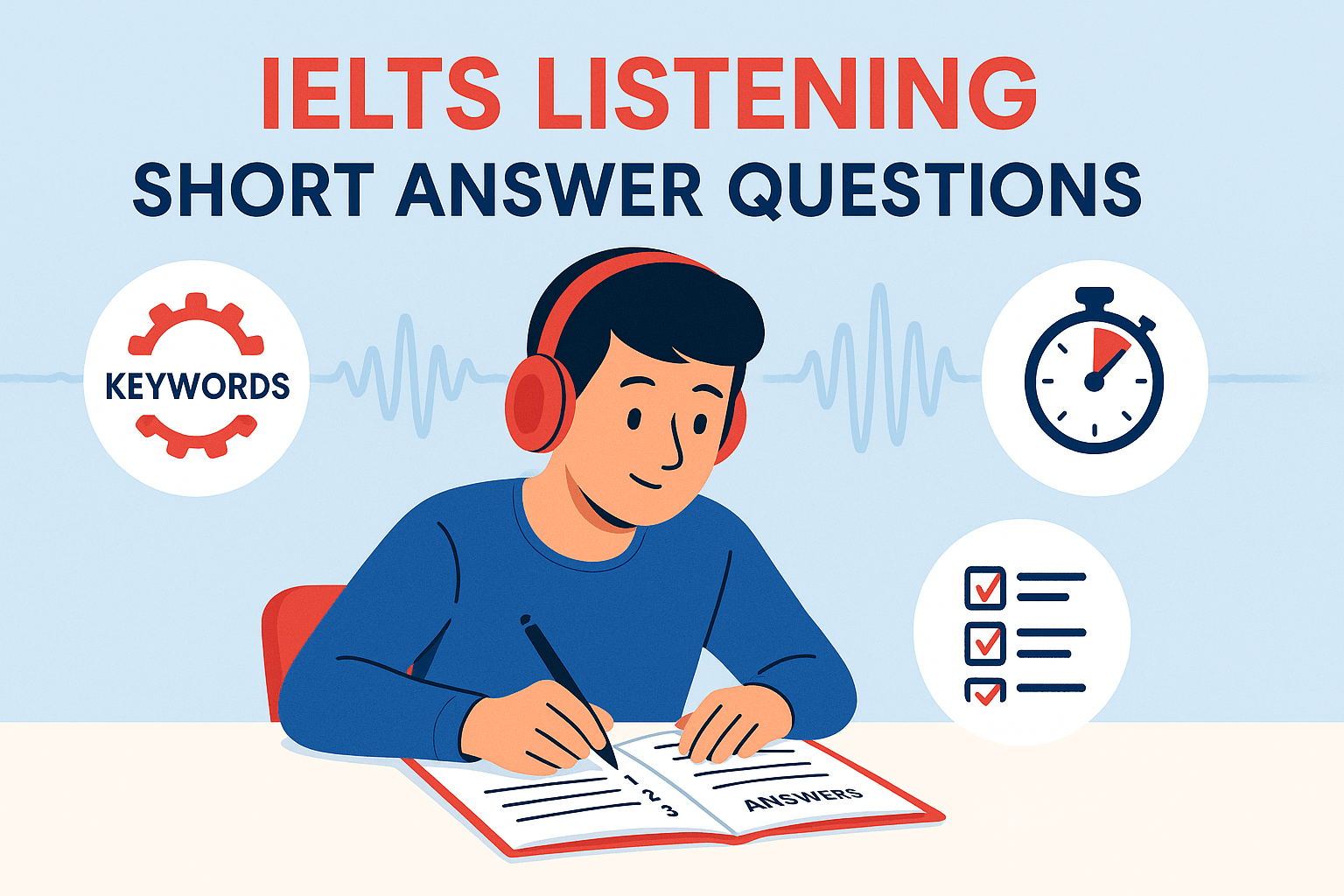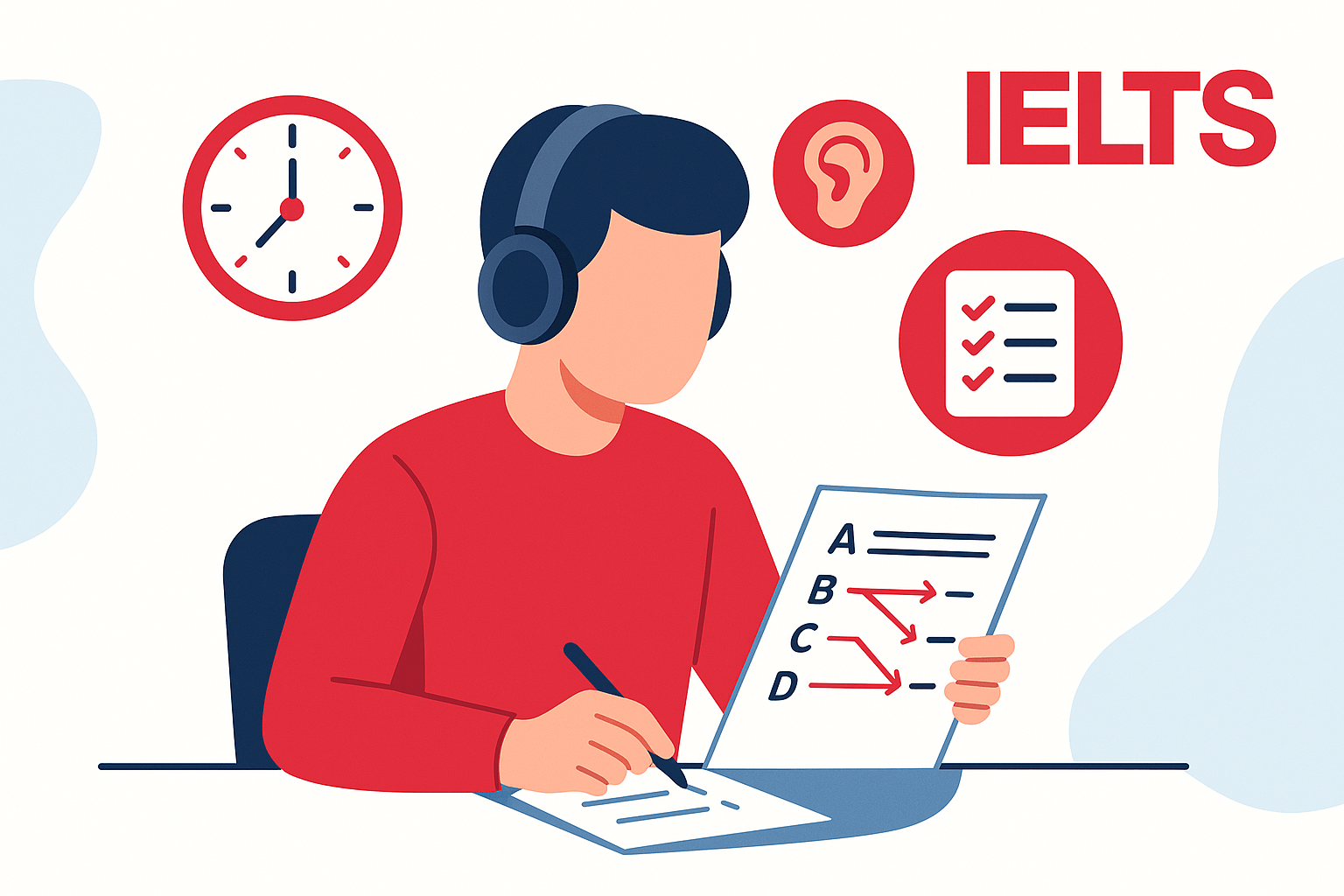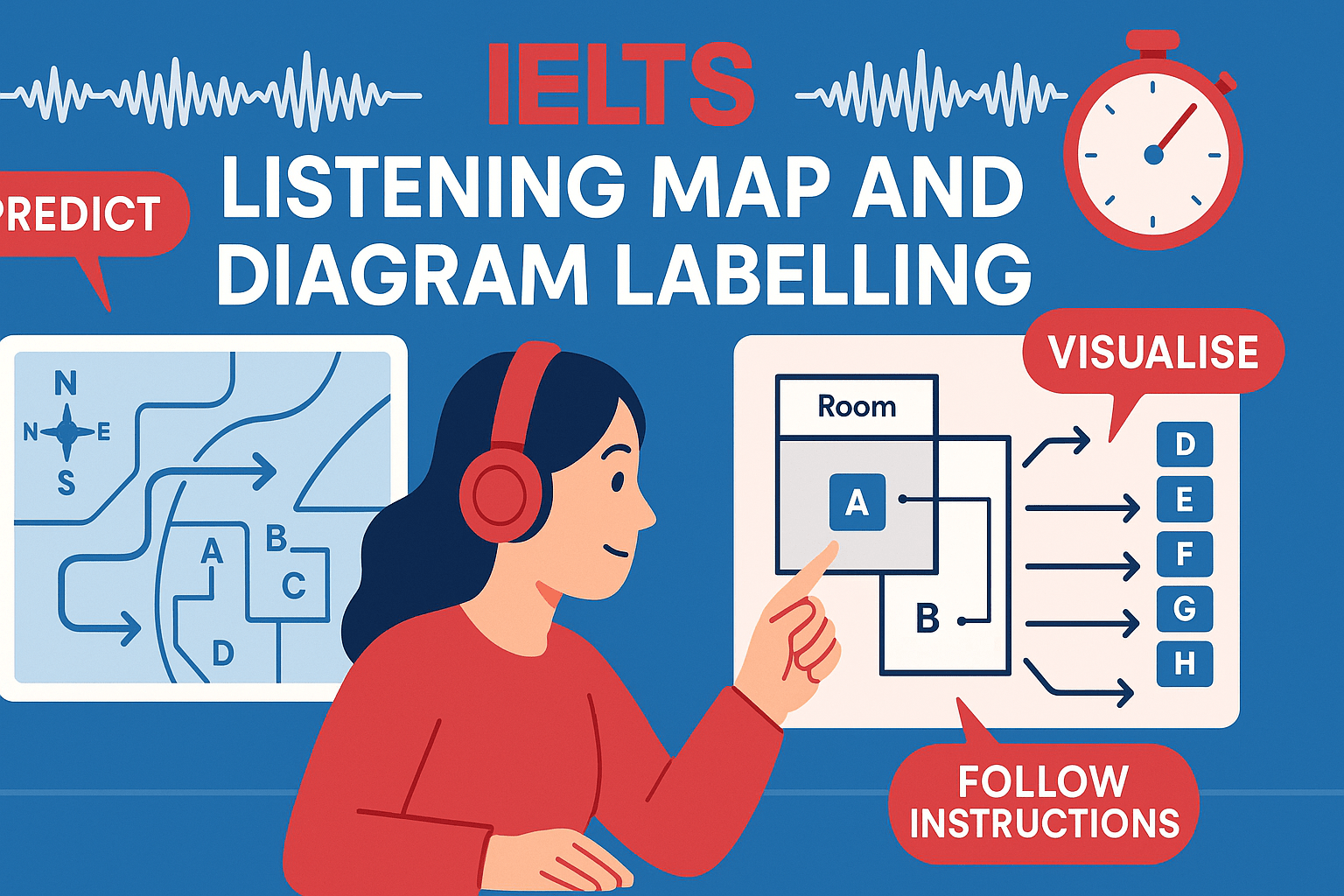- Why Sentence Completion Trips Students Up
- Step 1 – Read Before You Listen
- Step 2 – Listen for Meaning, Not Just Words
- Step 3 – Watch the Clock
- Step 4 – Check Spelling and Grammar
- Step 5 – Practice with Real Test Conditions
- Quick Checklist for Success
- Final Thoughts from My Experience
- Frequently Asked Questions
As an international IELTS teacher who has worked with students from over 30 countries, I know that IELTS Listening Sentence Completion tasks can feel deceptively simple. Many learners think, “It’s just filling in the blanks, right?” — but when they get their results, they’re shocked by the number of lost marks.
Over the years, I’ve seen patterns in the mistakes students make. The good news? Every one of them is avoidable with the right strategies and plenty of targeted practice tests. In this guide, I’ll share the most common pitfalls, my proven solutions, and some insider tips to help you improve your band score.
Why Sentence Completion Trips Students Up
Sentence Completion questions appear in various parts of the IELTS Listening test. You’ll hear a recording and complete sentences with missing words — often one to three per question. This sounds straightforward, but here’s where students often go wrong:
- Not reading instructions carefully — missing word limits like “NO MORE THAN TWO WORDS.”
- Failing to predict the answer type — not knowing whether the blank requires a noun, verb, or number.
- Spelling errors — losing marks for tiny mistakes like “organisation” vs. “organization.”
- Poor focus during audio playback — getting distracted after missing a single answer.
If you’ve ever fallen into one of these traps, you’re not alone. In my experience, even high-level students aiming for Band 7–9 make these errors without the right preparation.
Step 1 – Read Before You Listen
Before the recording starts, you have a few precious seconds to read the questions. Use this time to:
- Identify the type of information missing (e.g., a date, a place, an adjective).
- Underline keywords that will help you listen for the correct part of the audio.
- Predict possible answers — this narrows your focus and boosts accuracy.
One of my students from Vietnam went from 24/40 to 33/40 simply by mastering this pre-listening prediction step. It’s a simple yet powerful habit that transforms your performance.
Step 2 – Listen for Meaning, Not Just Words
The IELTS Listening test is not about catching isolated words; it’s about understanding ideas. In Sentence Completion tasks, the answer is often paraphrased in the recording. For example:
Question: “The project was completed in ___.”
Recording: “The team managed to wrap up the project in late September last year.”
If you only listen for the exact word “completed,” you might miss the answer entirely. This is why I encourage my students to practice with paraphrasing and synonyms — you’ll find examples in our IELTS Listening Question Types Guide.
Step 3 – Watch the Clock
Timing is crucial. While you’re answering one question, the recording doesn’t pause for you. If you miss an answer, don’t freeze — quickly move on to the next. You can guess the missed one later.
I’ve seen students lose three or four answers in a row because they got stuck thinking about just one. Treat every question as a fresh chance to score.
Step 4 – Check Spelling and Grammar
In IELTS Listening Sentence Completion, spelling mistakes cost marks. If the answer is “accommodation” but you write “accomodation,” it’s wrong — no partial credit.
Also, your answer must be grammatically correct in the sentence. If the sentence says “She enjoys ___ in her free time,” the answer “swim” would be wrong; it needs to be “swimming.”
Pro tip: If English spelling is tricky for you, make a personal “spelling watchlist” of words you often get wrong and review it before the test.
Step 5 – Practice with Real Test Conditions
To truly improve, practice under real exam timing. Resources like IELTS.org, British Council IELTS, and IDP IELTS offer official practice materials.
For deeper training, you can also explore premium preparation options such as IELTS courses on Course Line — they’re structured to cover all question types, not just Sentence Completion.
Quick Checklist for Success
Before the test, ask yourself:
- Have I reviewed the instructions for word limits?
- Can I predict the type of word needed for each blank?
- Do I know common synonyms for likely answers?
- Am I confident in my spelling?
- Have I practised with full-length listening tests?
Final Thoughts from My Experience
The IELTS Listening Sentence Completion task is a game of attention, prediction, and accuracy. I’ve watched students jump from Band 6 to Band 8 simply by avoiding the “little” mistakes that add up. With the right preparation, you can do the same.
Start applying these strategies now, and use them in your next practice session. If you treat every practice like the real test, the real test will feel like practice.
Frequently Asked Questions
1. How many words can I write in IELTS Listening Sentence Completion?
Check the instructions carefully. It usually says “NO MORE THAN TWO WORDS AND/OR A NUMBER.” Writing extra words will result in a wrong answer.
2. Are spelling mistakes accepted?
No. Even one incorrect letter means the answer is wrong. Pay attention to British spelling in IELTS.
3. Can I write answers in capital letters?
Yes, you can write all answers in capital letters to avoid issues with handwriting and capitalisation rules.
4. Should I guess if I’m not sure of an answer?
Absolutely. There’s no penalty for wrong answers, so never leave a blank space.
5. Where can I find more practice?
You can try IELTS Listening practice tests here and official resources from IELTS.org.





